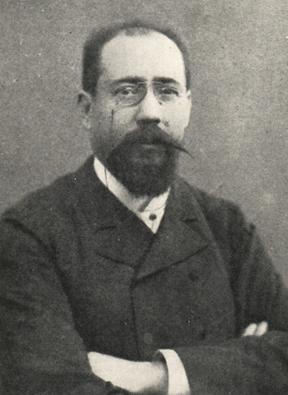Maurice Rouvier facts for kids
Quick facts for kids
Maurice Rouvier
|
|
|---|---|
 |
|
| Prime Minister of France | |
| In office 24 January 1905 – 12 March 1906 |
|
| President | Émile Loubet Armand Fallières |
| Preceded by | Émile Combes |
| Succeeded by | Ferdinand Sarrien |
| In office 30 May 1887 – 12 December 1887 |
|
| President | Jules Grévy Sadi Carnot |
| Preceded by | René Goblet |
| Succeeded by | Pierre Tirard |
| Personal details | |
| Born | 17 April 1842 Aix-en-Provence |
| Died | 7 June 1911 (aged 69) Neuilly-sur-Seine |
| Spouse | Marie-Noémi Cadiot |
Maurice Rouvier (born April 17, 1842 – died June 7, 1911) was an important French politician. He served as the Prime Minister of France two times. He was known for his ideas about money and how the country should manage its finances. He also tried to keep peace with Germany, even when it was difficult.
Contents
Maurice Rouvier's Early Career in Politics
Maurice Rouvier was born in Aix-en-Provence, a city in France. He started his career working in business in Marseille. He supported another important politician, Léon Gambetta, in 1867. In 1870, he started a newspaper called L'Egalité, which spoke out against the emperor.
Becoming a Finance Expert
In 1871, Rouvier was elected to the National Assembly, which is like the French parliament. He quickly became known for his knowledge about money and the country's budget. He often worked on the Budget Commission, helping to manage France's finances.
First Time as Prime Minister
In 1881, Rouvier was re-elected to the parliament. He believed the Church and the government should be separate. He also supported ideas like income tax. In 1887, he became the Prime Minister and Minister of Finance. His government faced challenges, including a scandal involving President Grévy's son-in-law. This situation led to his government falling.
Return to Government Roles
After his first time as Prime Minister, Rouvier continued to be important in French politics. He served as the Minister of Finance in several governments between 1890 and 1893. During this time, there were some accusations against him related to financial dealings, which led to his resignation from one government. However, he later became a successful banker and was still respected for his financial skills.
Maurice Rouvier's Second Term as Prime Minister
In 1902, after almost ten years, Maurice Rouvier returned to government as the Minister of Finance. He served in the government led by Émile Combes. When Combes' government ended in January 1905, President Émile Loubet asked Rouvier to form a new government. He became Prime Minister again, also keeping the role of Minister of Finance at first.
Key Policies of His Government
Rouvier's new government promised to continue some of the previous policies. These included looking into old-age pensions and introducing an income tax. His government also worked on the important law to separate the Church and the State. For example, in 1905, a law was passed to set aside money in the budget for unemployment benefits.
Handling Foreign Relations
A big focus for Rouvier's second government was foreign policy, especially with Germany. The previous government had made agreements with Spain and Britain about Morocco. This made Germany feel left out and caused tension.
On June 5, 1905, Rouvier had a strong disagreement with his Foreign Minister, Theophile Delcassé, about how Morocco was being handled. Delcassé resigned, and Rouvier took over the role of Foreign Affairs Minister himself. After difficult talks, he reached an agreement with Germany on July 8. This agreement allowed for an international meeting about Morocco. It also made sure Germany recognized France's special interest in keeping order near its Algerian border. Rouvier's government successfully managed these talks.
Separation of Church and State
One of the most important laws passed during Rouvier's second term was the 1905 French law on the separation of Church and State. This law aimed to create a clear division between religious institutions and the government. It was strongly supported by Emile Combes, the previous Prime Minister. The law was passed in December 1905. The changes caused some disagreements, but Rouvier's government handled them. However, his government did not last much longer after the presidential election in 1906.
Maurice Rouvier passed away in Neuilly-sur-Seine on June 7, 1911.
 | William M. Jackson |
 | Juan E. Gilbert |
 | Neil deGrasse Tyson |

